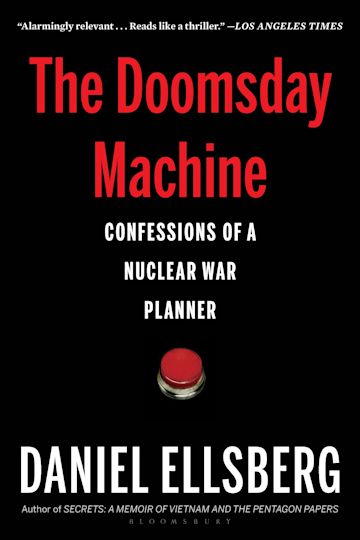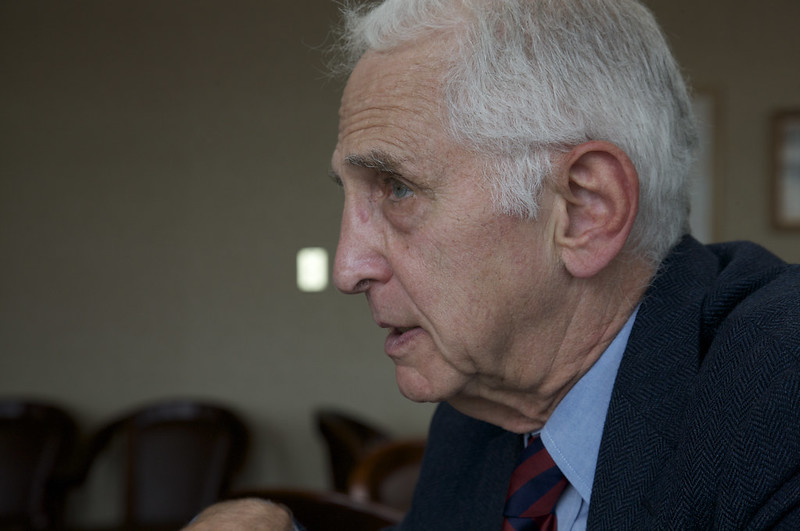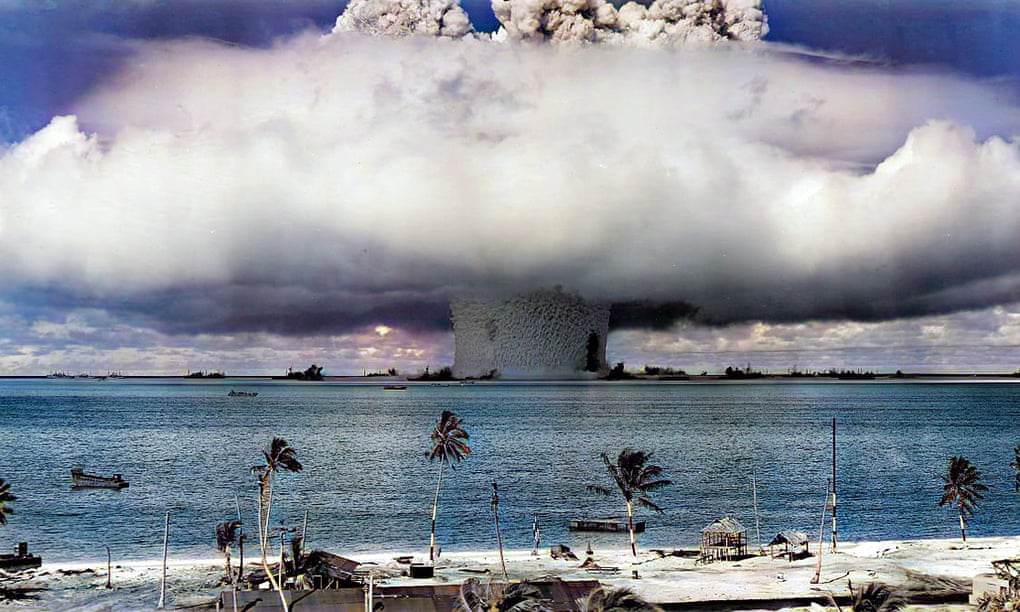Unilateral Sanity Could Save the World
Tom Dispatch
In my childhood, we at least acknowledged the ominous existence of nuclear weapons, no matter how weirdly. (...)
we children and our parents lived through that relatively hot period of the Cold War deeply aware that the world could indeed be blown out from under us at any moment. (...)
Today, the strange thing is that the world-ending weaponry of my childhood has only grown more horrific as global arsenals have continued to expand.
(Text continues underneath the logo.)
The U.S. now has an estimated 5,200 sea, air, and land-based nuclear weapons that could obviously devastate several Earth-sized planets. And of course, there are now nine nuclear powers, not just the two of my early childhood. Worse yet, future nuclear arsenals, whether in the U.S., China, Russia, North Korea, or Israel, are only likely to grow ever larger and more ominous.
And yet today, perhaps because — miracle of all miracles — since August 9, 1945, no country has ever used such a weapon again, nukes are barely acknowledged in our daily lives or, for that matter, in our culture. (...)
Daniel Ellsberg, (...) who, in the midst of the Vietnam War, risked life in prison to leak the Pentagon Papers simply never stopped talking about subjects that should obsess us all. (...) he spent the rest of his life warning us about the nuclear danger we’re still facing. (...)
[F]or more than five decades, Ellsberg didn’t hesitate to publicly address what he really did know all too much about — the patterns of government secrecy and lies that sustained America’s wars in one country after another, along with the chronic deceptions and delusions at the core of the nuclear arms race. He had personally seen such patterns of deceit at work in the upper reaches of the warfare state. As he told me, “That there is deception — that the public is evidently misled by it early in the game… in a way that encourages them to accept a war and support a war — is the reality.”
And how difficult was it to deceive the public? “I would say, as a former insider, one becomes aware: it’s not difficult to deceive them. First of all, you’re often telling them what they would like to believe — that we’re better than other people, we are superior in our morality and our perceptions of the world.” (...)
In his 2017 book The Doomsday Machine: Confessions of a Nuclear War Planner, he highlighted this all-too-apt epigraph from philosopher Friedrich Nietzsche: “Madness in individuals is something rare. But in groups, parties, nations, and epochs, it is the rule.” The ultimate madness of policies preparing for thermonuclear war preoccupied Dan throughout his adult life. (...)
[Ellsberg] was a realist about the probability that a nuclear war might indeed occur.
Such a probability now looms larger than at any other time since the Cuban missile crisis in October 1962, but its most essential lessons seem to have been lost on President Biden and his administration. (...)
Meanwhile, in U.S. media and politics, such dangers rarely get a mention anymore. It’s as if not talking about the actual risks diminishes them, though the downplaying of such dangers can, in fact, have the effect of heightening them. (...)
It’s easy to feel overwhelmed and powerless on the subject. The narratives — and silences — offered by government officials and most media are perennial invitations to just such feelings. Still, the desperately needed changes to roll back nuclear threats would require an onset of acute realism coupled with methodical activism. As James Baldwin wrote: “Not everything that is faced can be changed; but nothing can be changed until it is faced.”
Daniel Ellsberg was accustomed to people telling him how much he inspired them. But I sensed in his eyes and in his heart a persistent question: Inspired to do what?

Daniel Ellsberg The Doomsday Machine: Confessions of a Nuclear War Planner Bloomsbury, 2017
Tags: #books #nuclear_weapons #war #nuclear_war #thermonuclear_war #atom_bomb #us #united_states #russia #ukraine #putin #doomsday_clock #ellsberg #daniel_ellsberg #pentagon_papers #cuba_crisis #truthtelling_project #whistleblower #icbm #propaganda


